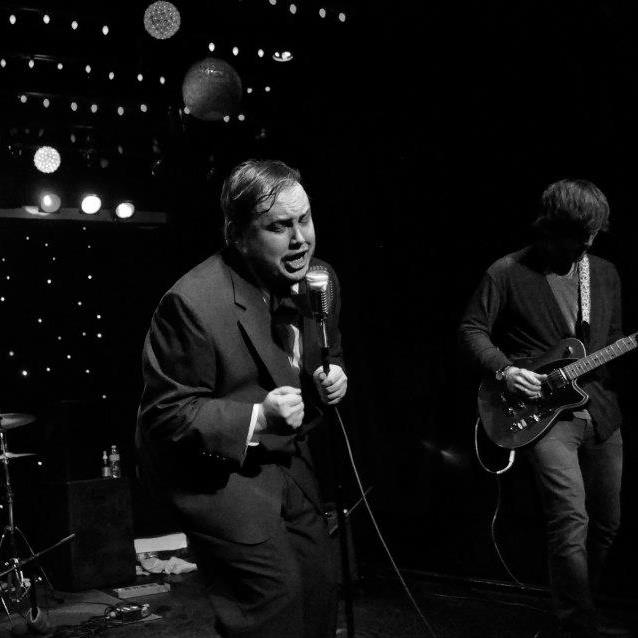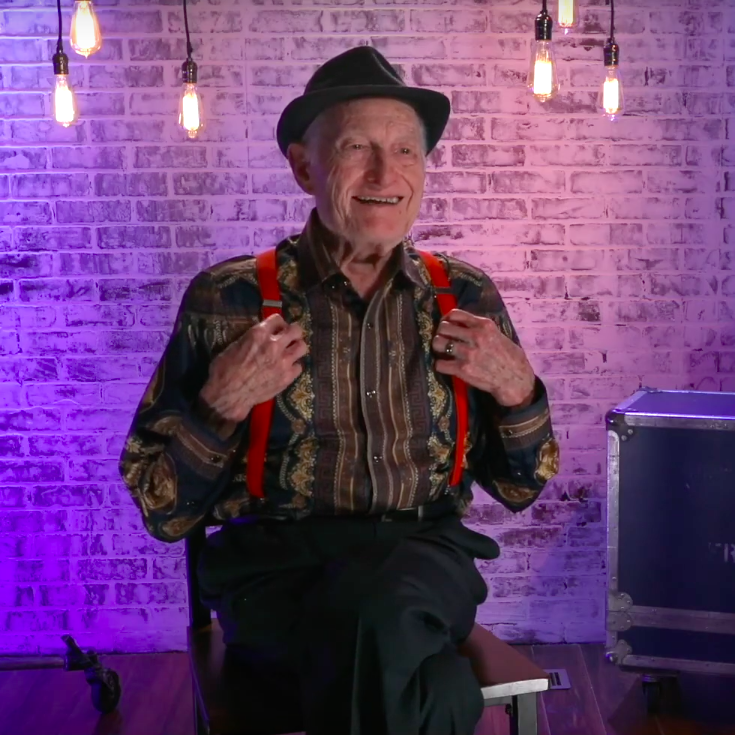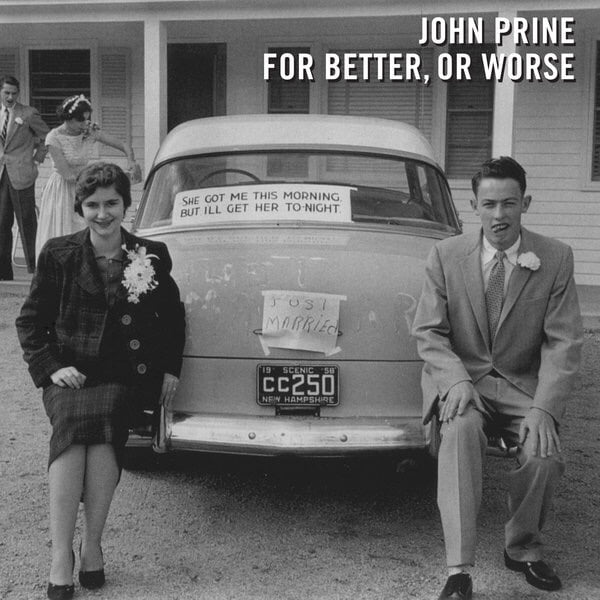If you haven’t heard of Birmingham, Alabama’s ST PAUL AND THE BROKEN BONES yet, don’t worry. They’ve been around for barely a year and are fronted by a bespectacled former bank teller, yet – in that short span the soul and roots worlds have taken notice: starting with a ‘holy-shit-what-did-I-just-see’ performance at Nashville’s Music City Roots last November (see it for yourself in the video below…. just wait til you get to around 1:45), breathless reviews from NPR Music and Paste, and following with packed shows across The South, this high energy outfit (Think early James Brown at the Apollo, recorded by Stax) is slated for a very big 2013. A new full length is on the way in April from the folks who brought you The Alabama Shakes and they have some tasty festivals on tap.
Their affable, whirling-dervish bandleader Paul Janeway confessed he wears the same suit to shows that he wears to funerals – but my guess is you’ll be talking about these fellows any day now. Paul met up for a phone conversation in late January – we chatted about his identity crisis, his future as a circus ring leader and how the bluegrass and soul genres are closer than you think. Here is an abridged transcript.
What is the first word that comes to mind to when you get up on stage and sing that first note? What does that feel like?
PAUL: [Laughs]. Oh man, the first word that comes to mind? I’m trying to think ’cause really nothing comes to mind. I basically go blank. I become another person.
A ‘transformation’ if you will?
PAUL: Yeah! A transformation. I don’t know, man. When I get on stage it’s…it’s time to get going. It’s time to testify, time to lose yourself a bit.
What I think people appreciate about you is that you’re putting on a spectacle – which I don’t believe a lot of folks are familiar with when seeing performers anymore. It’s easy to think that if you are at a better venue, the musicians are professionals and they are going through their motions.
PAUL: Right. I’ve seen that. For me personally, if you can’t get out there live and give people a show…maybe that’s what people see, they see us and they’re like, ‘oh, they’re really into this!’ and it translates.
You came out of the church. Do you feel like gospel music is still the base sauce or the deepest root of all American music?
PAUL: Absolutely. Don’t think there’s much doubt about that. You listen to the old spirituals and even with bluegrass it’s all…religious, it’s all based in that certainly. It’s weird – I don’t call myself particularly religious now, but I still sing those songs and there’s something about them that just hits me. It’s the same with the songs that we sing. Sometimes it just hits me, I’m emotional about it. There’s an intimacy that goes on.
Do you close your eyes when you sing?
PAUL: Mostly, most of the time I do. But it’s funny, we played this sold out show at one of my favorite places in Birmingham, and there was this guy in the front row, who just sat there with his arms crossed, the whole show!
Yeah?
PAUL: And we’re NOT that kind of show. Everybody else is dancing and getting into it and I usually close my eyes and get into it but I was watching this guy for like half the show. And what’s funny is that he comes up to me after the show and is like, ‘you guys were so un-fucking-believable! so amazing!’ And I’m like, ‘dude, you sat there the whole time and stared at me!’ and then I’m like, ‘next time you come to a show I’m getting out there and making you get up and dance’.
Maybe that’s what separates original forms of American music from classical and earlier types of music that kept its audience at arms length – you sit there with your arms folded and get up and leave when it’s done. Whereas music that comes from the church has an inherent call-and-response element, there’s a reaction expected from everyone in the room. Many people I believe are inhibited and they see someone like you who maybe kind of looks like them…
PAUL: Totally!
And they’re like, ‘if this guy can lose his shit up there, maybe I can let my hair down for a moment too’.
PAUL: Yeah, in those instances, we do lead by example. People are always gonna be worried about how cool they look. I’ve kinda gotten to the point where I don’t…obviously I put on my suit and stuff but I think it’s when you make that connection, whether it’s one or twenty people that makes it really special. That’s what got me attracted to music.
What’s the first thing you remember listening to as a kid?
PAUL: [Laughs] Um, OK. There was a 70’s group called The Stylistics – it was one of the only secular CDs, or maybe it was a cassette tape at the time – that my mom owned, everything else was religious. I remember this guy singing in this high voice.
How old are you?
PAUL: I’m 28.
It’s a good age to start doing something serious with your life, right?
PAUL: [Laughs] Yeah! This is what is really sad – I actually work at a bank as a teller. Which is crazy. What’s funny is that we just found out that we got a showcase at SXSW. And I was told by my employer that if I go to that – I will no longer have a job.
You got yourself a job! Unfortunately it might not pay much at first…
PAUL: Exactly! It’s crazy – the last 24 hours have been really nuts.
You feel like you’re ready to go through the gauntlet?
PAUL: Yeah. Absolutely. When I was little my mom told me I was either gonna be a circus ring leader or a preacher.
It’s not really that much different.
PAUL: No, it’s not. It’s really not. I used to get up the top of my bed and perform and do things. I just never thought it feasible. You know what I mean? Like, oh, that’s kind of a stupid dream. You start getting to this age and you’re like, I should get a real job. Actually when the economy crashed I lost my job and I was unemployed for a really long time. I thought I could maybe do music but it never quite worked out…I’d never really been in a band – didn’t know a thing about it. I somehow fell into this. I’ve always sang – I was just singing in the church.
You go where the demand is, right?
PAUL: Guess so.
Seems if you wanted to compare the current post-recession with the years after The Great Depression as instigators of a more theatrical, raw, high-energy music – ragtime, dixieland, swing, bluegrass, blues, rockabilly into soul and rock n’ roll – it’s all there. Is it all coming around again?
PAUL: I don’t know – it’s interesting. I guess you hear that nothing is new under the sun. I do think people are searching for some sort of authenticity. There’s been a lot of great records in the last twenty or thirty years, there’s lots of changes in music – but I do think some of that authenticity has been lost. I know how tough it was for me, going through that – being unemployed – there are a lot of bands out right now that are sharing things from that older music.
I’ve seen you describe that ‘hurt’ in your voice – whatever that special curve is, if you will, that a lot of great soul singers and gospel singers have – that indescribable – tilt that makes a blue tune go. Maybe the only way you really get that is by going through a certain amount of personal hardship and heartbreak.
PAUL: You know – I’d say… that’s probably not the case. I’m an avid soul music fan but…it might also be true. It’s not a contest. I’ve been through some pretty tough shit and what’s funny is when I was going through everything I didn’t realize it but now…I guess that ‘hurt’ in the voice is not just something you can just do. There’s got to be something to it. A story to it. If you asked Otis Redding or James Carr, Sam Cooke, all those guys, there’s a story to it.
If you had to tell people who just listened to your music – what is the weirdest, most unexpected influence you have?
PAUL: [Laughs]. Ahh. Probably the weirdest out of everybody would be Radiohead. Obviously I don’t really channel that but…
Maybe it seeps in the back door of your subconscious.
PAUL: Yeah! That’s the weirdest thought I’ve had when we were playing. We don’t get too crazy I don’t think.
You’ve fallen in love with the brass as you’ve gone forward with your group. Is that something that’s steeped in the South – that dirty, brash sound that’s been around you or is it something you really liked from hearing other records that you want as part of yours?
PAUL: Well I didn’t really grow up around brass to be honest – I grew up around the piano and stuff like that. It’s something I’ve always wanted. It takes money to have brass instruments around!
Where do you think you’re gonna be a year from now?
PAUL: Probably on the road. That’s probably where we’ll be. We’ll have an album released by then – we actually just got done recording it with Ben Tanner of the Alabama Shakes. We’re really proud of that thing. Hopefully a lot of people will hear it and it connects with a bunch of folks.
You haven’t come out to the west coast yet right?
PAUL: No, but we’re dying to.
Is there something universal about soul music and this hybrid roots-blues thing or do you think it might not resonate in certain places?
PAUL: You know I’ve always thought of it as a Southern thing. But we’ve had reaction from everywhere. Whether you like it or not, or if you think it’s the same old tricks – bluegrass kind of gets that rap too – people just think it’s the same thing over again – whether you think that or not, there’s a certain amount of authenticity to it.
It works for a reason!
PAUL: Yeah exactly! It’s our interpretation. I think it does resonate with people, I happen to believe that. There’s a difference between Motown and Stax. There’s a certain type of Southern type thing – if you listen to Smokey Robinson and the Miracles and the Motown thing it’s…smoother. But if you listen to some of that Stax stuff it’s a bit more gritty.
If you could go on tour with two other bands who were completely out of your genre, who would they be.
PAUL: Golly. I’d say – have you listened to that new Kendrick Lamar album? I’d love to do something with someone like that…and like Dr. Dre.
I could see that happening.
PAUL: Or Nick Cave and The Bad Seeds and maybe Tom Waits. Be kind of rad.
There is something about what Tom Waits does – he retains this air of mystery…you seem like a pretty regular, good-head-on-your-shoulders guy. When you’re going through that transformation that you talked about – it’s like the butterfly coming out of the cocoon when the stage lights go on…but when the lights go off, do you find yourself trying to cultivate that similar kind of mystery or personality when people start approaching you?
PAUL: Ahh. I want to. I wish I was smart enough to do it. Honestly I’ve been trying – especially being the lead singer of a band…but I try and be as much of myself as I can be so they can say that at least we were honest up there, you know what I mean? I don’t particularly look like a lot of soul singers.
You think you’d ever do a pure gospel album? Like when Aretha went back and did ‘Amazing Grace’ ?
PAUL: I’d love to one day make a straight gospel album. Some of my biggest influences – I love Alex Bradford who was actually from Bessemer Alabama, not far from Birmingham – so many singers that I admire from that era. I’m not particularly religious but it definitely still touches me.
It’s in the bloodstream.
PAUL: Definitely.
You write most of the lyrics to your songs?
PAUL: I actually write all the lyrics to our songs. As far as the music goes – it’s much more collaborative, has been more so recently.
The band came together by you meeting in the studio making your first EP?
PAUL: It was a very strange way of doing things. There is a studio here in Birmingham – and I didn’t know what I wanted to do. Me and Jessie [Philips] came to the studio and were like…let’s make something.
Kind of what the Beatles did, right?
PAUL: Yeah, we’re just like the Beatles. [Laughs].
Should I put that as the headline of the interview?
PAUL: Yes, put that in the title. I always get shit from someone in town when I do these interviews! One time someone called me Philip Seymour Hoffman…
What do your parents think of your SXSW or the bank predicament?
PAUL: My mom is a big music fan – she grew up religious. She came to a few shows where I’ve cussed. We have an agreement that that’s ‘on stage Paul’ but off-stage Paul doesn’t get to say those words. Not that I cuss a lot. My dad…I think he thought for the longest time that it wouldn’t work out. He ‘s kind of a pessimistic thinker – anything good that’s happened, he’s like ‘they must be up to something’. I think now they are pretty proud, pretty OK with it.
The interesting thing is – music on one hand is this impossible dream as a career…until it isn’t.
PAUL: Right, which is something I totally recognize. I thought it was just unattainable. But when I quit singing and I only sang in church every once and I while, I got so depressed.
How long did you not play music?
PAUL: I didn’t sing for over two years.
Wow.
PAUL: I thought – I got to get on with my life. You get to that point where this is kind of a pipe dream.
I think everybody is going to be happy to have you on the scene – it’s something we can get excited about going to. I feel like there’s a lot of bands that have a publicist propping them up but there’s only a few groups that are always worth the price of admission. I saw the Alabama Shakes out here in LA when they first came through and everybody in the room was like…’Ooooooh’. It takes a true frontwoman/frontman to be the way-shower into the religion of whatever that moment is. Music is the only religion that works.
PAUL: I agree with that. It’s the only one that’s never been untrue.
Everyone staring up at this light….
PAUL: Totally.
If it really blows up for you – whether you like it or not – it becomes bigger than you. You’re part of an experience that people need to have.
PAUL: I do know that I enjoy it so far – I really do.
If you had to guess…which commercial will be using one of your upcoming songs to peddle their wares?
PAUL: I’m hoping that Tampax will pick us up? Really the one I’m shooting for.
I’m thinking more like…Cadillac.
PAUL: We have a new song on the upcoming album and there are some lyrics that say ‘call me’…and they are definitely gonna want put this on a Verizon commercial. We’re like ‘noooo!’
You’re like ‘nooo!’ but….’yes!’
PAUL: Yeah…if I could get some sort of toilet bowl or ExtenZe commercial I’d be really happy.
Let’s get back to the roots music discussion – do you think that maybe groups or artists that were once separated like Bob Dylan, James Brown and Mumford and Sons are all coalescing now under one grand ‘folk music’ umbrella? Is that a good thing?
PAUL: Hmm. Good question. Kind of a mixed bag for me. You look at someone’s IPod or record collection I mean…now we have access to so much music – it’s bound to come up as one huge glob, you know? The only thing I’ll say is, particularly soul music – it is an extension of roots music but I never thought you could put that in the same category as Bob Dylan. But you can! You really can – you make those connections. I think it’s good – it brings exposure to really great music.
It does annoy me sometimes when there’s a ‘folk festival’ with Kanye West on it or something.
PAUL: But in a way…Hip Hop is a more modern folk music. It really is. I don’t know about Kanye…it’s like Kraftwerk, that’s German folk music?
Americana is a good label – as in music traditions that have originated out of America. It gets complicated.
When you write a new song, is it a lightning-striking, everything-else-stops situation? Or can you write it over time.
PAUL: Our best songs are that way – just a shift. We just recorded an album, we did about thirteen songs, ten of those were totally original. Most of those ten were written within a two week span. You know what I’m saying? I don’t recommend it – but for us and what we do, it works.
When it rains it pours.
PAUL: Right. Exactly. If you start to process it a lot – what we’re doing – it loses its power a little bit. You hear stories all the time about Muscle Shoals, how the Staples Singers hit ‘I’ll Take You There’ – that was a jam session at the studio and they just happened to crank that out.
Booker T’s ‘Green Onions’ was a sound check song.
PAUL: That’s my point. For what we do – it was recorded live, there’s not a lot of vocal overdubs – it is what it is. The core of it was live. We did it to tape – we did it the way it should be done I feel like.
When you’re playing raw, from-the-heart music, you don’t want to fake it.
PAUL: That’s what we set out to do. We were really nervous – we were told we were gonna record this album, come in January and we were like…shit. It was an amazing experience – we had musicians play with me that…I’m very fortunate.
I think it’s great. People will gravitate to your story.
PAUL: That’s it – it’s my story. I’ve struggled so much with identity, being from The South and that perception of being from The South and Alabama and I’ve struggled with that for the longest time – now, you know, I’m pretty comfortable with it.
Is there still lingering nostalgia for that pro-Confederacy mystique that you see around you? Do you feel like soul music is almost a way to fight against that reputation of The South?
PAUL: Certainly. That’s the thing – living in Birmingham my whole life, the history is really saturated with civil rights – a lot of bad stuff – not a lot of positive stuff. But the beauty of soul music, especially during that time, Stax was white and black musicians making that music. For me there’s something really wonderful and great about that. Being from this area, you get really familiar with that. So much power and strength can arise from all this badness. I feel a kinship to it and I’m just glad I found some musicians who can help me do it.
I’m sure the bank will want you back.
PAUL: [Laughs] I don’t know! I can always get a job somewhere else. I can always do something else. But these things don’t happen very often.
ST. PAUL AND THE BROKEN BONES will release their new record in April 2013 on Single Lock Records. See them at SXSW this March.






